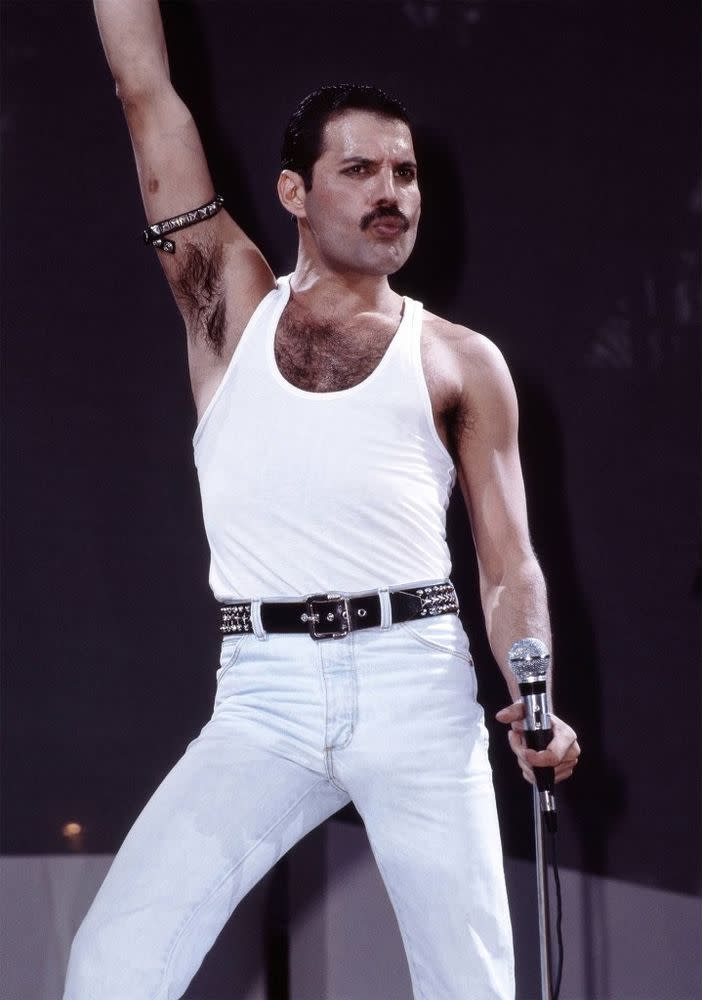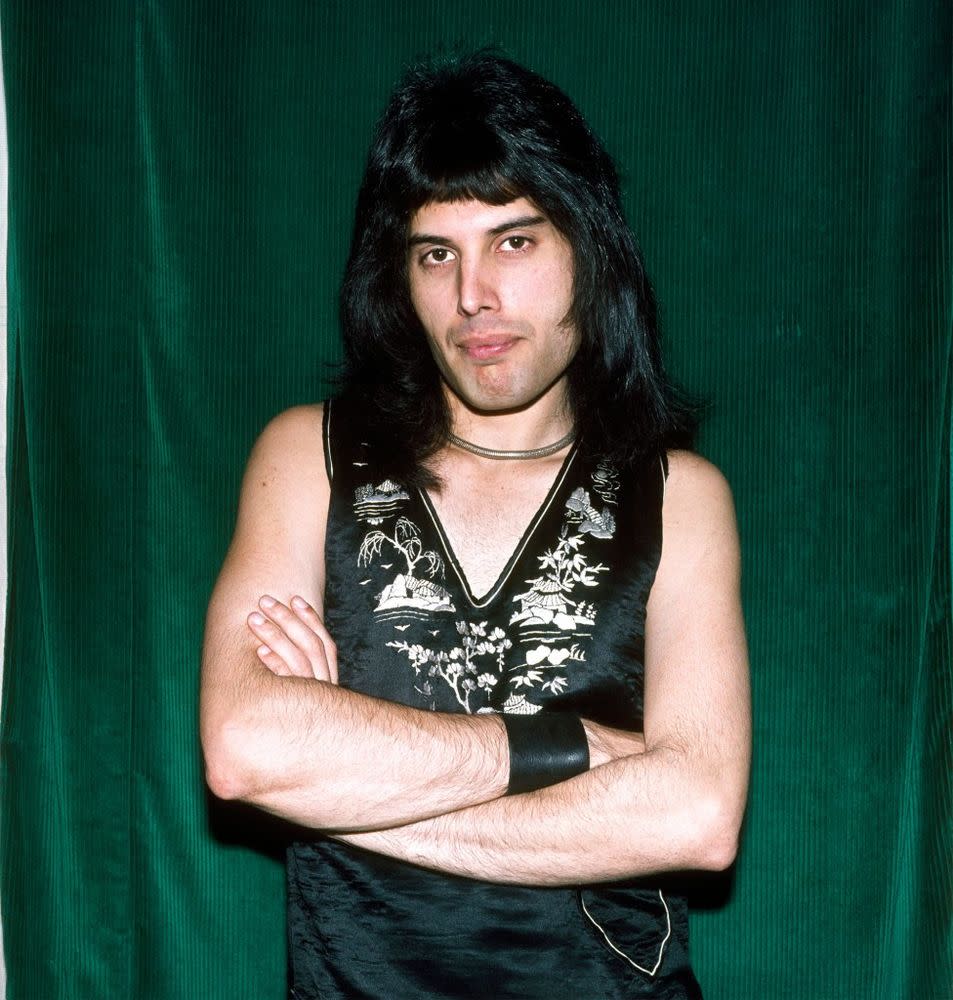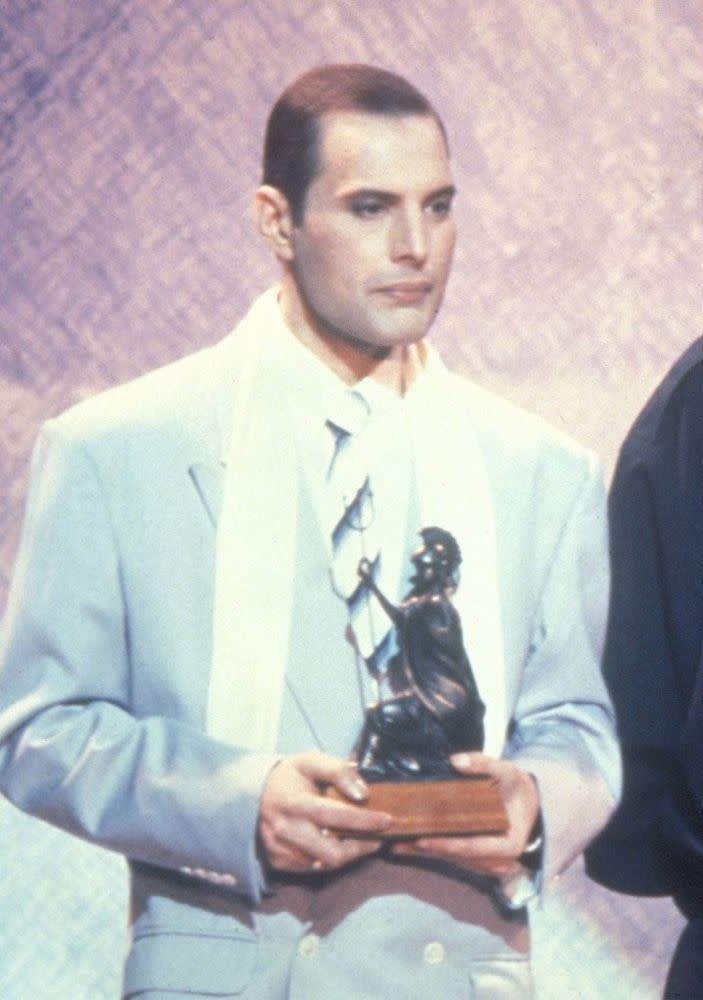Bohemian Rhapsody: Inside Freddie Mercury's Final Days and Death at 45 from AIDS
Almost 27 years after the death of Queen frontman Freddie Mercury, he continues to be an enigma.
Mercury, who died from complications of AIDS in 1991, is at the center of a Queen biopic that touches on his life — and shocking death at the age of 45.
Born Farrokh Bulsara in Tanzania in 1946, Mercury was an intensely private person who rarely granted interviews to reporters.
Even as he faced intense scrutiny from the press beginning in 1986 when rumors circulated he had been tested for HIV/AIDS, Mercury kept his health concerns to himself and closest friends.
Diagnosed with the fatal disease in 1987, the news of his declining health led Queen to abruptly end the Magic Tour that was seen by over a million people — making it one of their largest tours.
Around that time, Mercury denied he had tested positive for the disease.

Despite the singer’s denials, media scrutiny surrounding his health intensified and was fueled by photographs of Mercury which ran in the British press showing him as increasingly frail and thin.
In one of his last public appearances, a gaunt Mercury joined band members Brian May, Roger Taylor and John Deacon on stage at the 1990 Brit Awards in London, where they accepted the Brit Award for Outstanding Contribution to Music.
While the “Don’t Stop Me Now” singer continued to battle his illness in private, he didn’t stop working. In May 1991, a very thin Mercury was featured in the Queen music video “These Are the Days of Our Lives” in what would be his final video for the band.
The foursome traveled to a studio in Montreux, Switzerland where their final recording as a band with Mercury was made.
“We all knew there wasn’t much time left,” May told The Telegraph in 2013. “Freddie wanted his life to be as normal as possible. He obviously was in a lot of pain and discomfort.”
May added, “For him, the studio was an oasis, a place where life was just the same as it always had been. He loved making music, he lived for it.”

Toward the end of his life, all Mercury wanted was peace.
“He was pursued by the press and curious people,” May told the newspaper. “He just wanted peace and quiet, to be able to get on with what he did.”
The singer might have wanted to be left alone from the press, but he continued to be hungry for more music.
“He just kept saying, ‘Write me more. Write me stuff. I want to just sing this and do it and when I am gone you can finish it off.’ He had no fear, really,” May recalled.
Mercury returned to London in early November 1991 telling his bandmates, “I’m not feeling that great, I think I should call it a day. I’ll finish it when I come back, next time,” as May recounted.
The “Somebody to Love” singer never returned.
On November 23, 1991, Mercury released a statement obtained by The Guardian at the time in which he finally confirmed he had tested positive for HIV/AIDS.
RELATED VIDEO: It’s Christmas for Queen! Stars of ’Bohemian Rhapsody Light Up the Streets of London
“Following the enormous conjecture in the press over the last two weeks, I wish to confirm that I have been tested HIV positive and have AIDS,” the statement read. “I felt it correct to keep this information private to date to protect the privacy of those around me.”
“However, the time has come now for my friends and fans around the world to know the truth and I hope that everyone will join with me, my doctors and all those worldwide in the fight against this terrible disease,” he said.
“My privacy has always been very special to me and I am famous for my lack of interviews,” Mercury continued. “Please understand this policy will continue.”
The very next day, on Nov. 24, Mercury died at his home in Kensington. Mourners created a shrine to the singer outside his home with graffiti messages lining the outside wall of the house after his death.
May told The Telegraph he couldn’t believe the news when he heard it.

“We were all wondering if it was an illusion and he was going to be cured,” he said. “You can’t really take these things in properly. Then we got the phone call.”
“It was surreal,” May explained. “Even though we had been preparing for such a long time, it still didn’t feel possible.”
The guitarist said it wasn’t until he saw the news on TV that the reality finally settled in.
“We all got together and talked and had a drink and then saw it announced on the TV,” he said. “Strangely enough, that was when it seemed real for the first time. You thought, ‘Oh my God, he really has gone and everybody knows now. It can’t be taken back.'”
RELATED: Why Bohemian Rhapsody Almost Bit the Dust: Inside the Controversial Freddie Mercury Movie
The remaining members of Queen honored Mercury at a benefit concert held in April 1992 at Wembley Stadium for an audience of about 72,000.
Elton John, David Bowie, George Michael, Seal, Annie Lennox, Robert Plant, Axl Rose and Slash, as well as Liza Minnelli and others performed at the benefit concert in which the proceeds went to the launch of The Mercury Phoenix Trust, an AIDS charity organization.
The biopic of Queen is in theaters Friday.

